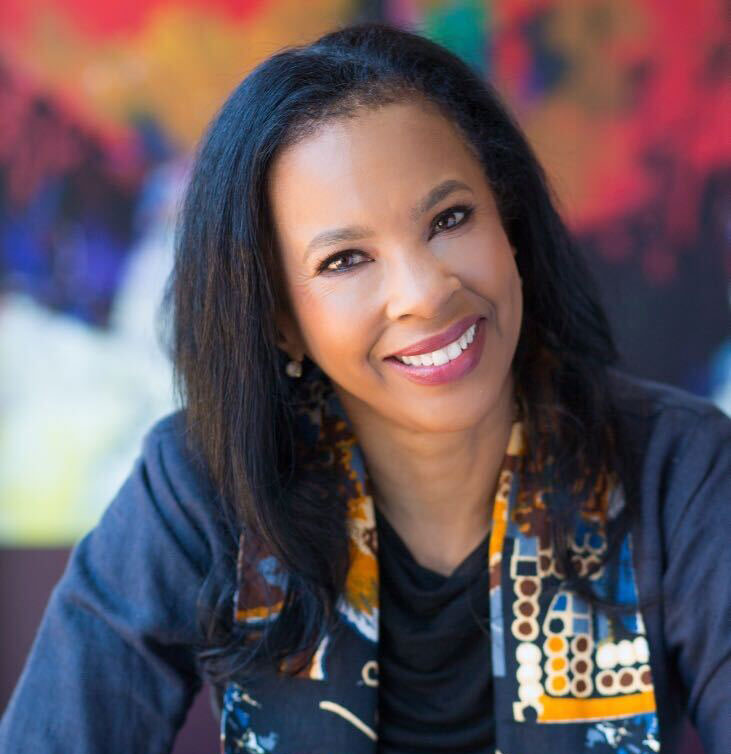
Is police reform actually achievable? That’s the question I’m most interested in asking Regina Jackson.
Ms. Regina, as she’s often called, has been the Executive Director of the East Oakland Youth Development Center since 1994. That’s where she perfected her system of mentorship and community engagement.
I’ve seen her skills firsthand: In 2014, I was a part of a trip she organized as a part of President Barack Obama’s My Brother’s Keeper Initiative, where 17 young African American men spent two weeks in China. Through Ms. Regina’s practice of connecting men of different ages—or “staggered mentorship,” as she calls it—I saw the young men grow over the course of the trip.
In 2017, Ms. Regina was elected to a four-year term as the Chair of the Oakland Police Commission—an independent review board that works outside of OPD to oversee policies and practices within the department.
Ms. Regina’s goal is to bring her philosophies on mentorship and community development to the Oakland Police Commission, in the hopes that it will result in substantial reform to the Oakland Police Department– which has been under a federal monitor since 2003.
In spite of knowing the power of Ms. Regina’s work, given all that I’ve experienced with police in America, especially over these past few weeks–with footage of George Floyd’s Death and the tale of Breonna Taylor’s death—I’m pessimistic about the potential of “reforming” police departments in America, Oakland’s included.
But if anyone is going to make a dent in police reform, it’s going to be someone like Ms. Regina.
Below are lightly edited excerpts of my conversation with Regina Jackson.
Pen: I want to ask you about your work that you’re doing with the Oakland Police Department. How does hope play into your efforts to change what’s going on inside that institution?
Regina: I have been able to create a toolkit to transform young people who have never been to college and never known how to do jobs, to be supervisors, to be doctors and PHDS and all the rest of that. So I thought the skill set that I have and the programs that I have created, these kinds of things could probably work inside policing. You know, you have to greet people in a humanizing way when you stop black males, for example. Your first question should not be, are you on probation or parole? It should be. How are you doing today? You should humanize the engagement between police, because let’s face it, they can’t do their jobs without community. And community will never feel safe if they don’t have a trusted relationship with the police.
Pen: Given everything that’s transpired recently, historically as well, I’m not believing that change can occur. And so I’m wondering: is just changing the little pebble that is the Oakland Police Department, will that help in moving the mountain in terms of the change that we’re looking to get in America?
Regina: I absolutely believe that it will. Being able to fire the police chief already sets us on a national course around leadership. And so people are looking at us to see what it is that we’re going to do. How do you identify and support the things that are good? And how do you identify and delete the things that are bad? People kind of have to look around and say, OK. Can I get away with this? And if they see that most people can’t, they won’t even try. The only way to make change is a little bit at a time. It’s really hard to make sweeping change and then keep it there.
Pen: It’s a lifestyle change. It’s not like you just go on a strict diet for a week. And I mean, essentially, that’s what we’re seeing right now is the strict diet for a week where people sending I care about text messages and institutions are sending emails about black lives right now. We need you to have a full lifestyle change.
Regina: I like the way you’re saying that. And that also works with diversity in hiring practices. You know, Reverend Jackson took on Silicon Valley. You know, people like, oh, my God, you know, our numbers are horrible. And it’s like it’s because you don’t think about what cultural beauty that you are welcoming into the company. They’re just looking for the tech piece. And it’s like you have to see people. And so then they would start recruiting them, but then they couldn’t retain them. Why? Because they still didn’t see them.

Rightnowish is an arts and culture podcast produced at KQED. Listen to it wherever you get your podcasts or click the play button at the top of this page and subscribe to the show on NPR One, Spotify, Apple Podcasts, TuneIn, Stitcher or wherever you get your podcasts.

